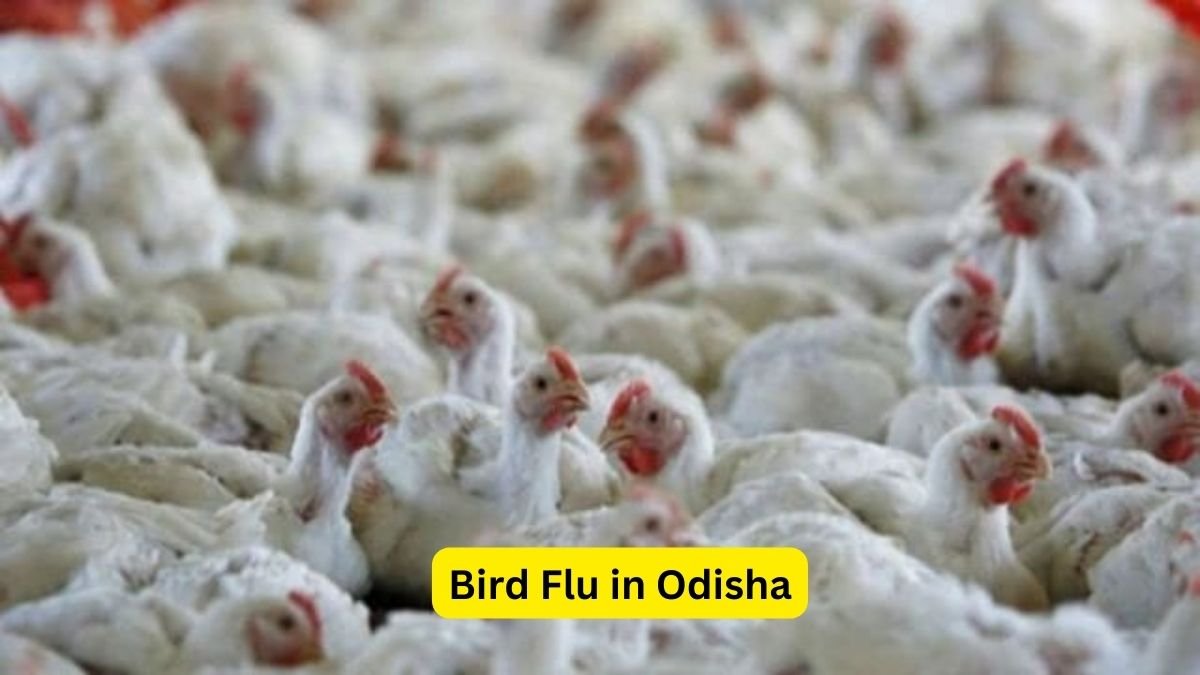Bird Flu in Odisha- Bird flu, also known as avian influenza, has been a recurring concern in various parts of the world. Recently, a human case of bird flu was detected in Odisha, India, raising alarm across the state. This virus, which primarily affects birds, has the potential to infect humans, leading to severe health consequences. In this article, we will delve into the current situation in Odisha, discuss the symptoms and precautions related to bird flu, and provide detailed information on how to protect yourself and your community from this threat.
What is Bird Flu?
Bird flu is caused by the influenza type A virus, which naturally occurs among wild aquatic birds worldwide and can infect domestic poultry and other bird and animal species. Although the virus typically does not infect humans, certain strains have crossed the species barrier and caused severe illness in humans. The most common strain known to infect humans is the H5N1 virus.
Current Situation in Odisha
Recently, a human case of bird flu was confirmed in Odisha, sparking widespread concern. The patient, whose identity has been kept confidential, reportedly contracted the virus through close contact with infected poultry. This incident marks a significant moment in the region’s public health scenario, as bird flu infections in humans are rare but potentially deadly.
Odisha’s health authorities have intensified surveillance and have been urging the public to follow strict biosecurity measures. The detection of bird flu in humans is a reminder of the zoonotic potential of this virus, meaning it can jump from animals to humans under certain conditions.
Symptoms of Bird Flu
Recognizing the symptoms of bird flu is crucial for early diagnosis and treatment. The symptoms in humans can range from mild to severe and often mimic those of regular influenza, making it essential to be vigilant if there has been exposure to potentially infected birds.
Common Symptoms:
- Fever: Often one of the first symptoms to appear, a high fever can be a sign of bird flu.
- Cough: Persistent coughing is common in those infected with the bird flu virus.
- Sore Throat: Inflammation and soreness in the throat are often reported by those infected.
- Muscle Aches: Generalized muscle pain and fatigue can occur.
- Shortness of Breath: Difficulty in breathing can be an indication of severe infection.
Severe Symptoms:
- Pneumonia: In advanced cases, the virus can lead to pneumonia, a serious lung infection.
- Acute Respiratory Distress Syndrome (ARDS): This life-threatening condition involves fluid buildup in the lungs.
- Multi-Organ Failure: In extreme cases, the virus can cause failure of multiple organs, leading to death if not treated promptly.
How is Bird Flu Transmitted?
Bird flu primarily spreads through contact with infected birds. The virus is present in the saliva, mucous, and feces of infected birds, and it can spread to humans through direct contact with these substances. Transmission can also occur through inhalation of aerosolized particles or contact with contaminated surfaces. It’s important to note that human-to-human transmission is extremely rare but has been documented in a few cases.
Precautions to Prevent Bird Flu Infection
Preventing bird flu requires strict adherence to biosecurity measures, especially in regions where outbreaks have been reported. Here are some key precautions to follow:
Avoid Contact with Infected Birds:
- Steer Clear of Poultry Farms: If you live in or near affected areas, avoid visiting poultry farms or coming into contact with domestic birds.
- Do Not Touch Dead Birds: Refrain from handling sick or dead birds, whether wild or domestic.
Practice Good Hygiene:
- Wash Hands Regularly: Use soap and water to wash your hands frequently, especially after handling birds or being in areas where birds are present.
- Use Masks and Gloves: When dealing with birds, wear protective gear such as masks and gloves to reduce the risk of infection.
Cook Poultry Thoroughly:
- Ensure Proper Cooking: Make sure all poultry and eggs are cooked thoroughly before consumption. The virus is killed at high temperatures, so avoid consuming raw or undercooked poultry products.
Monitor Your Health:
- Seek Medical Attention Early: If you experience symptoms such as fever, cough, or difficulty breathing after contact with birds, seek medical attention immediately.
- Get Vaccinated: Although there is no specific vaccine for bird flu, getting the seasonal flu vaccine can help reduce the risk of co-infection and complications.
Government and Health Authorities’ Response
In response to the detection of bird flu in Odisha, health authorities have ramped up efforts to contain the virus and prevent further spread. This includes increased surveillance of poultry farms, culling of infected birds, and public awareness campaigns. The government has also issued advisories to the public on the importance of following hygiene practices and avoiding contact with birds.
The Importance of Early Detection and Reporting
Early detection of bird flu cases in both birds and humans is critical in controlling the spread of the virus. Farmers and poultry handlers are urged to report any unusual deaths or illnesses in birds to authorities immediately. Similarly, individuals who develop symptoms after contact with birds should seek medical attention without delay. Early reporting can help prevent larger outbreaks and save lives.
Conclusion
Bird flu remains a significant public health concern, especially with the recent human case detected in Odisha. By understanding the symptoms, modes of transmission, and necessary precautions, we can protect ourselves and our communities from this potentially deadly virus. Public awareness and vigilance are key to preventing the spread of bird flu and mitigating its impact on human health.
In this blog, we have provided detailed information on Bird Flu in Odisha. We appreciate you taking the time to read this post about Bird Flu in Odisha in our blog! If you find this information useful, please share this blog with your friends and family so that they can also know about Bird Flu in Odisha. Visit our website homepage weblog365.in to read more interesting and informative blogs and stay updated.

My name is Yogesh Pandey, and I hail from Lucknow, India. I work in digital marketing. I have been blogging since 2023. I write about Technology, Entertainment, Automobile, and Lifestyle providing insights to help others find quality products. I am excited to have the opportunity to collaborate with weblog365.in now. You can reach out to me via email at weblog365.in@gmail.com. Let’s connect! 🙏
